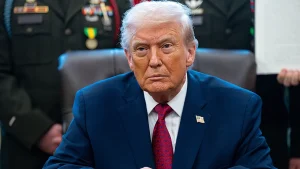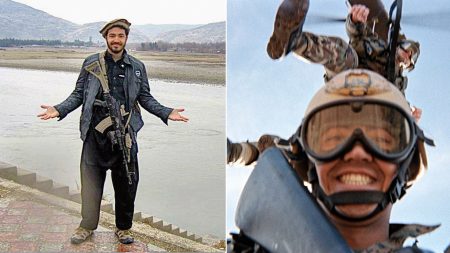Diplomatic Dynamics: How the Solomon Islands Became Ground Zero for Great Power Competition in the Pacific
Beneath the Surface of Honiara’s Regional Summit: A Geopolitical Chessboard Emerges
As regional leaders arrived in Honiara last week for the Pacific Islands Forum, the Solomon Islands capital revealed itself as much more than a mere host city. Walking through downtown Honiara, one encounters a landscape increasingly defined by international influence – Chinese-funded government buildings gleaming in the tropical sun, Australian-branded infrastructure projects, and American diplomatic messaging adorning billboards along major thoroughfares. These visual markers represent something far more significant than simple development assistance; they embody the intensifying geopolitical contest unfolding across the Pacific region, with the Solomon Islands at its epicenter.
The transformation of this archipelago nation into a focal point of great power competition has accelerated dramatically over the past three years. In 2019, the Solomon Islands government under Prime Minister Manasseh Sogavare made the momentous decision to switch diplomatic recognition from Taiwan to China, setting in motion a cascade of developments that have reshaped the nation’s political landscape and international relationships. “What we’re witnessing isn’t simply about aid or development,” explains Dr. Tess Newton Cain, Project Lead for the Pacific Hub at the Griffith Asia Institute. “It’s about strategic positioning in a region that has become increasingly vital to global security architecture.”
The summit itself became a theater where these competing interests played out in real-time. Chinese officials maintained a highly visible presence throughout the proceedings, while Australian representatives emphasized their nation’s longstanding partnership with Pacific Island countries. American diplomats, meanwhile, unveiled new regional initiatives clearly designed to counter Beijing’s growing influence. Japanese and European delegations also participated actively, underscoring the truly global nature of interest in this previously overlooked region. For ordinary Solomon Islanders, the increased international attention brings both opportunities and concerns. “We welcome development partners who respect our sovereignty and address our priorities,” said Joseph Maelalo, a civil society leader in Honiara. “But we don’t want to become pawns in someone else’s strategic game.”
The Infrastructure Race: Concrete Manifestations of Diplomatic Competition
The physical landscape of Honiara has been transformed by what many analysts describe as “infrastructure diplomacy.” China’s signature Belt and Road Initiative has left its mark through numerous high-profile projects, including the nearly completed national stadium being built for the 2023 Pacific Games. The impressive facility, funded by a $74 million grant from Beijing, stands as perhaps the most visible symbol of China’s growing footprint. Nearby, construction continues on government buildings and road networks similarly financed through Chinese assistance programs. These projects employ thousands of local workers while also bringing in Chinese laborers, creating new economic dynamics within the capital region.
Not to be outdone, traditional partners have accelerated their own infrastructure investments. Australia, historically the Solomon Islands’ largest development partner, has refocused its aid program to emphasize visible, high-impact projects. The recently completed Honiara International Terminal, prominently displaying Australian funding acknowledgments, represents Canberra’s commitment to maintaining influence. Similarly, Japan has funded critical transportation infrastructure, while New Zealand has concentrated on education facilities and climate resilience projects. The United States, though a relative latecomer to this particular competition, announced during the summit a comprehensive Pacific infrastructure initiative worth $810 million.
The infrastructure race extends beyond buildings and roads to telecommunications and digital connectivity. After the controversial entry of Chinese telecommunications giant Huawei into the Solomon Islands market, Australia and the United States responded by funding alternative digital infrastructure projects, emphasizing security concerns. “Digital sovereignty has become as important as territorial sovereignty,” noted telecommunications policy expert Dr. Amanda Watson from the Australian National University. “The nation that builds the digital infrastructure potentially gains privileged access to critical data and communications.” For Solomon Islands officials, navigating these competing offers requires sophisticated diplomacy. “We evaluate each proposal based on our national development priorities,” explained Finance Minister Harry Kuma in a press conference during the summit. “But we recognize that these offers come with implicit expectations about alignment on broader issues.”
Security Partnerships: The Most Sensitive Dimension of Regional Competition
Perhaps no aspect of the competition for influence has generated more international attention than security arrangements. The 2022 security pact between the Solomon Islands and China sent shockwaves through regional diplomatic circles, with Australia, New Zealand, and the United States expressing serious concerns about the potential for Chinese military presence in a region traditionally within Western security architecture. While the full details of the agreement remain confidential, its existence fundamentally altered security calculations throughout the Pacific. During the summit, Chinese security personnel were visibly present around certain venues, a physical manifestation of the expanded security relationship.
Australia has responded by deepening its own security cooperation with the Solomon Islands. The Regional Assistance Mission to Solomon Islands (RAMSI), which concluded in 2017 after a 14-year presence following civil unrest, has been succeeded by new bilateral security arrangements. Australian Federal Police officers now provide training and operational support to their Solomon Islands counterparts, while Australian defense advisors maintain a consistent presence. The United States has similarly sought to strengthen security ties, with high-ranking military officials making unprecedented visits to Honiara in recent months. “The militarization of diplomatic competition creates particular risks,” warns Dr. Sinclair Dinnen, security expert at the Australian National University. “Unlike economic or infrastructure competition, which can deliver tangible benefits regardless of the donor, security partnerships often require exclusive commitments.”
For Solomon Islands leaders, balancing these competing security relationships requires extraordinary diplomatic skill. Prime Minister Sogavare has maintained that his government’s security arrangements with China do not preclude cooperation with traditional partners. “Our security policy is guided by the concept of ‘friends to all, enemies to none,'” he stated at the summit’s opening ceremony. However, this position becomes increasingly difficult to maintain as great power competition intensifies. The domestic political consequences are equally complex, with opposition figures criticizing what they characterize as excessive alignment with Beijing. November 2023 national elections will likely become a referendum on the government’s approach to these competing security partnerships, with implications extending far beyond the Solomon Islands’ borders.
Economic Development and Resource Management: The Practical Stakes of Geopolitical Competition
Beyond infrastructure and security, economic development and resource management represent critical domains of competition. The Solomon Islands possesses significant natural resources, including timber, minerals, and fisheries, which have attracted international interest. Chinese companies have established dominant positions in the logging industry, while also expanding into mining operations. Australian and New Zealand companies maintain significant investments in agriculture and tourism, sectors they have traditionally dominated. The competition extends to fisheries access, with various nations negotiating for rights to the Solomon Islands’ extensive marine resources.
Foreign direct investment patterns reveal the changing economic landscape. Chinese investment has increased exponentially since 2019, focusing primarily on extractive industries and large-scale construction. Japanese investment concentrates on sustainable fisheries and food processing facilities. Australian commercial engagement emphasizes service sectors and professional development. American economic interest has historically been limited but shows signs of increasing under new Pacific-focused initiatives announced during the summit. “The economic dimension of competition creates both opportunities and risks,” explains Dr. Transform Aqorau, CEO of iTuna Intel and former head of the Pacific Islands Forum Fisheries Agency. “While multiple investment sources can drive development, they also create the potential for corruption and unsustainable resource exploitation if not properly managed.”
For ordinary Solomon Islanders, the practical impact of this economic competition manifests in employment opportunities, environmental changes, and social dynamics. Chinese-funded projects often bring immediate employment but raise questions about long-term sustainability and skills transfer. Western investments typically emphasize capacity building but sometimes progress more slowly. “Different development partners bring different approaches,” noted Jennifer Wate, director of a local women’s advocacy organization. “The challenge for us is leveraging these varied approaches to create genuine, sustainable development that benefits all Solomon Islanders, not just elites or foreign interests.” The summit featured extensive discussion of development models, with Pacific leaders asserting their right to determine development priorities rather than having them imposed by external partners.
The Future of Pacific Diplomacy: Navigating Multipolarity with Island Wisdom
As the summit concluded, the fundamental question facing Solomon Islands and other Pacific nations came into sharp focus: how to maintain sovereignty and advance national interests while navigating intensifying great power competition? The traditional binary choice between alignment with either Western powers or China appears increasingly outdated. Instead, Pacific leaders are pioneering a more sophisticated approach that prioritizes regional cohesion while selectively engaging with competing external partners. The “Blue Pacific” concept, emphasized throughout the summit, represents this emerging strategic vision – one that places Pacific peoples and their unique perspectives at the center of regional diplomacy rather than treating the region simply as an arena for external competition.
“Pacific Island nations have always been navigators,” reflected Baron Waqa, former President of Nauru and respected regional statesman. “Our ancestors crossed vast oceans by reading stars, winds, and currents. Today, we navigate equally complex geopolitical waters, guided by our values and priorities.” This navigation increasingly involves regionalism as a counterbalance to bilateral pressures. The Pacific Islands Forum itself has gained renewed importance as a platform for collective engagement with external partners, allowing smaller nations to amplify their voices. The summit’s final communiqué reflected this approach, welcoming development partnerships while firmly asserting Pacific leadership in determining regional priorities.
For the Solomon Islands specifically, the path forward involves delicate balancing. The Sogavare government maintains that diversifying international partnerships strengthens rather than compromises sovereignty. Critics counter that without careful management, the nation risks becoming leveraged in larger geopolitical struggles beyond its control. As citizens prepare for national elections, these competing visions of the Solomon Islands’ international orientation will be tested at the ballot box. Meanwhile, the visual evidence of international competition – from construction projects to diplomatic signage – continues to transform Honiara’s landscape, making abstract geopolitical concepts concrete for everyday citizens. Whatever the electoral outcome, one reality appears certain: the Solomon Islands’ days of geopolitical obscurity are firmly in the past. As great power competition intensifies across the Indo-Pacific, this nation of remarkable cultural diversity and strategic significance will remain at the crossroads of 21st century diplomacy, navigating complex currents with the wisdom of island peoples who have faced external pressures for generations.










